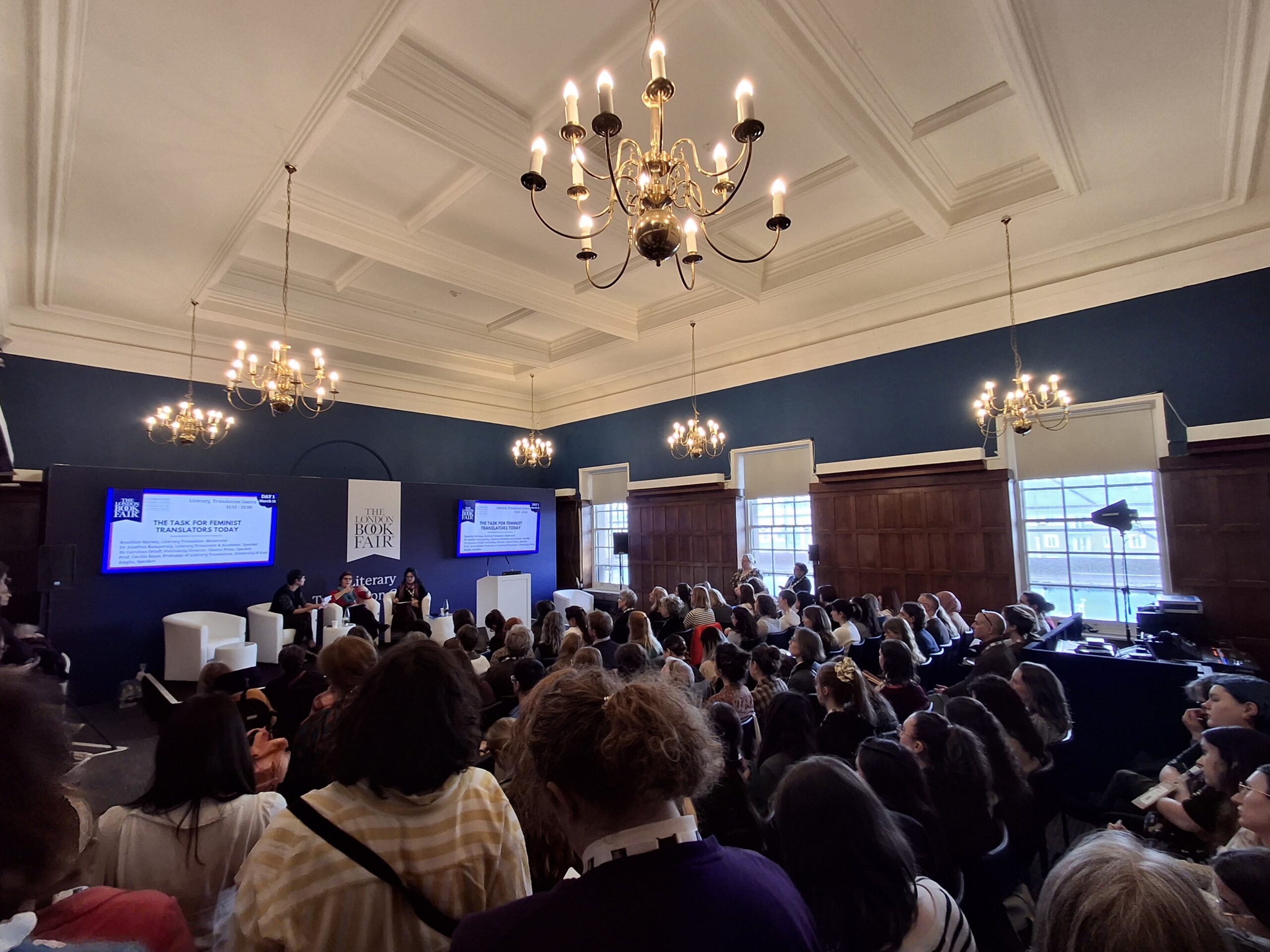The Feminist Translation Network was set up to explore what feminist translation means in practice in the twenty-first century, with a focus in the first instance on contemporary literary translation in English. It’s been seven months since our first event at the Birmingham Literature Festival in October 2024 and so it seems like a good moment to pause and take stock.
We had the initial idea for a network because feminist translation is a much-discussed topic within the academic discipline of Translation Studies but there is little consensus about what it means in practice. We wanted to start a bigger conversation, bringing in the views of professional translators, writers, publishers, educators, readers, and others. It seemed like a topical conversation to be having, given that feminism is currently enjoying both a global resurgence and a global backlash.
Over the past seven months, we’ve held a range of events, including a translation slam, creative translation workshops in schools, a translator ‘scratch night’, and panel discussions. We’ve created spaces for people to come together to experiment, share work, and reflect. Through the events we’re exploring questions such as: What is feminist translation? How does it differ – or not – from translations of women or by women, or from queer translation or gender-inclusive translation? Is feminist translation a matter of identity or a matter of practice? What are the goals of feminist translation and whom is it for? At all times, we’ve tried to ensure that translation practice is at the heart of the conversation.
As co-lead of the FTN, I’ve had the pleasure of being involved in all of the network’s activities so far, and meeting and learning from many wonderful people. As a result, I’ve been able to write up some preliminary insights from the project, which you can read and download on the ‘Outputs’ page of the FTN website. Of course, there are no definitive answers to the questions we’re asking. But I think it’s fair to say that there are certain themes and ideas which are shared by a number of project participants and which keep coming up at events.
Personally, I would say that there are two things which have really struck me. First, I’ve been blown away by the interest our project has generated. We’ve had great audiences in-person and online; at our latest event people were saying ‘hello’ in the Zoom room from Morocco, Mexico, Algeria, Turkey, Palestine, India and Egypt, as well as all across Europe. We receive regular requests from people wanting to join the network and currently have over sixty members. Feminist translation seems to be a topic which is important to people out there in the ‘real’ world and not just within academia.
Second, there are multiple ways of understanding feminist translation practice but professional translators don’t seem to think of it first and foremost as something which can be detected on the pages of a translation. Instead, feminist translation seems to be about wider working practices in the industry. They’ve pointed out that the majority of literary translators in the UK and US are women, and literary translation has generally been precarious and poorly paid. Feminist practices, therefore, include mentoring junior colleagues, and building a community of translators who can support each other in negotiating good contractual terms. To me, this is really interesting, as it’s a perspective on feminist translation which I believe is rarely considered in universities. I can’t wait to see how our discussions are going to develop from here!
Hilary Brown, University of Birmingham
Pictured: ‘The Task for Feminist Translators Today’, panel at the London Book Fair, March 2025, co-organised with the British Centre for Literary Translation

I don’t think the title of your article matches the content lol. Just kidding, mainly because I had some doubts after reading the article.
Your article helped me a lot, is there any more related content? Thanks!
Reading your article helped me a lot and I agree with you. But I still have some doubts, can you clarify for me? I’ll keep an eye out for your answers. https://www.binance.com/register?ref=IHJUI7TF
Your article helped me a lot, is there any more related content? Thanks!
Thank you for your sharing. I am worried that I lack creative ideas. It is your article that makes me full of hope. Thank you. But, I have a question, can you help me? https://accounts.binance.info/register-person?ref=IXBIAFVY
Can you be more specific about the content of your enticle? After reading it, I still have some doubts. Hope you can help me.
Your point of view caught my eye and was very interesting. Thanks. I have a question for you. https://accounts.binance.info/es-AR/register-person?ref=UT2YTZSU
I don’t think the title of your article matches the content lol. Just kidding, mainly because I had some doubts after reading the article.
Thanks for shening. I read many of your blog posts, cool, your blog is very good.
Thanks for sharing. I read many of your blog posts, cool, your blog is very good.
Your point of view caught my eye and was very interesting. Thanks. I have a question for you.